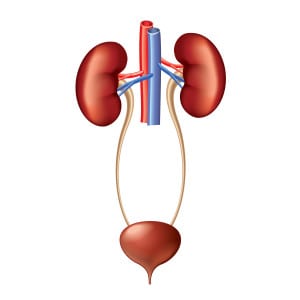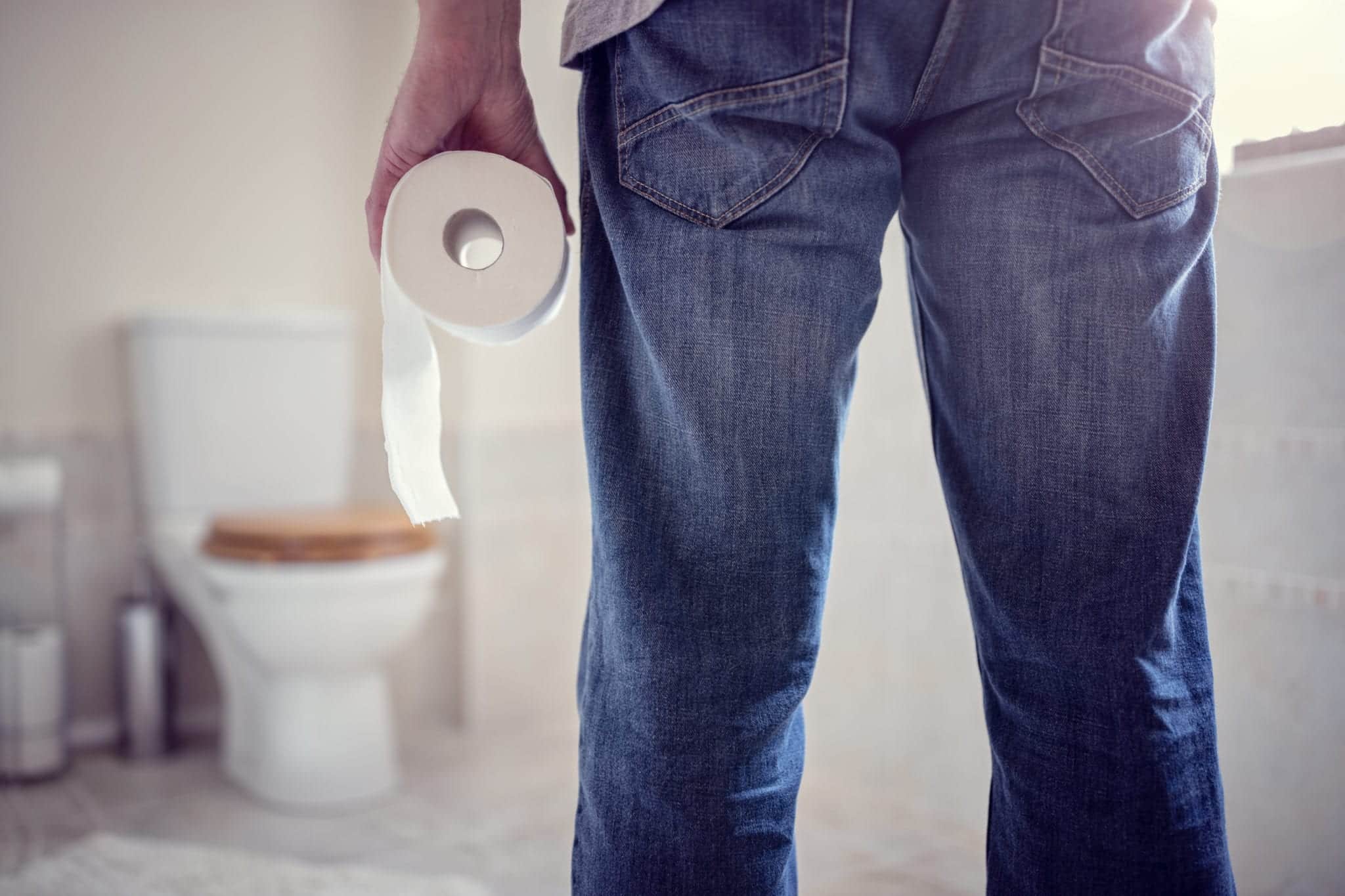Enlarged Prostate in Chattanooga, TN
What is LUTS?
 LUTS stands for Lower Urinary Tract Symptoms, a group of symptoms that can arise from bladder obstructions. LUTS increases with age. One-third of men will develop urinary (outflow) symptoms due to benign prostatic hyperplasia (BPH). In older men, LUTS is often associated with an enlarged prostate or BPH. LUTS may have a significant negative effect on a man’s quality of life.
LUTS stands for Lower Urinary Tract Symptoms, a group of symptoms that can arise from bladder obstructions. LUTS increases with age. One-third of men will develop urinary (outflow) symptoms due to benign prostatic hyperplasia (BPH). In older men, LUTS is often associated with an enlarged prostate or BPH. LUTS may have a significant negative effect on a man’s quality of life.
Schedule an Appointment Today
Lower Urinary Tract Symptoms
Lower urinary tract symptoms (LUTS) include:
- Going to the bathroom more often than usual
- Having a strong urge to urinate that is often hard to delay – “gotta go, gotta go”
- Painful urination
- Nocturia – waking frequently to urinate
- Weak urine stream
- Dribbling/leaking urine after you’ve finished urinating
- Hesitancy – having to wait to start to urinary stream
- Intermittency – starting and stopping of the urine flow
- The sensation that your bladder is not completely empty after you are done urinating
- incontinence of urine
These symptoms are non-specific and common and increase in frequency and severity with age. While common, these symptoms can have multiple causes, so a full investigation by a urologist is required to identify all potential causes.
Causes of LUTS
Causes of lower urinary tract symptoms include:
- BPH – benign prostatic hyperplasia
- UTI – urinary tract infection
- Chronic prostatitis (inflammation of the prostate due to various causes including infection)
- Neurological conditions
- Urinary tract stones
- Cancers in the kidney, prostate or bladder
Diagnosis of LUTS
You will receive an initial evaluation from one of our experts at UT Urology, including your medical history, a physical exam, a digital rectal exam (DRE) and urinalysis. A full assessment helps avoid the assumption that LUTS in men is due to BPH. Most of the causes can be diagnosed by exam and a careful history. However, your urologist may order several tests including PSA, ultrasounds or x-rays, urodynamic testing, or cystoscopy to identify the underlying cause.
Treatments for LUTS
The goal of treatment is to reduce the symptoms and prevent progression. Treatment of LUTS depends on the cause. Typically, mild symptoms can be treated with conservative measures including:
- Self-management, including lifestyle changes, like altering fluid intake
- Drug treatments can reduce symptoms and possibly stop progression
- Surgical options are available where lifestyle and medical management fail
If the cause of LUTS is benign prostatic hyperplasia (BPH), additional treatments will be necessary.
Click to Call UT Urology Today – (423) 778-5910
What is BPH?
The prostate gland functions to control the secretion of semen, which nourishes and protects sperm. Typically, prostate diseases manifest as difficulty in urination.
BPH is also called prostate adenoma. This is a benign [non-cancerous] enlargement of the prostate gland due to an overgrowth of prostate tissues. An enlarged prostate compresses the urethra, restricting urine flow which leads to urinary symptoms such as difficulty urinating. These lower urinary tract symptoms (LUTS) impact the quality of life for about 40% of older men. The combination of erectile dysfunction (ED) and LUTS are suggestive of BPH. Compression of the urethra also can lead to bladder conditions. BPH is common in older men, affecting 70% of U.S. men 60-69 years of age, and 80% of men 70 and older.
BPH may also lead to recurrent infections, bladder stones, and kidney dysfunction.
When Should You Seek Medical Care?
You should see a doctor if you have any of the symptoms listed above. In addition, if you have blood in your urine, pain or burning on urinating, are unable to urinate, or are in significant discomfort or pain in your lower abdomen, you should see a doctor immediately.
What Causes Enlarged Prostate?
You are more likely to develop BPH if you are over age 40, have medical conditions like obesity, cardiovascular disease, type 2 diabetes, are sedentary, have erectile dysfunction and/or have a family history of BPH. While age and genetics play an important role in the cause of BPH, modifiable risk factors like diet, and exercise are believed to play a significant role in this condition. However, other diseases can cause symptoms like BPH.
How is BPH Diagnosed?
Your doctor will ask you to rate your symptoms using a questionnaire, take your medical history and conduct a physical exam, including a digital rectal exam (DRE). DRE is essential in evaluating men presumed to have urinary issues associated with prostate enlargement. You may receive a urinalysis and possibly a blood test to screen for prostate cancer. Your doctor may discuss with you your sexual function. Other tests may follow, to rule out conditions that cause similar symptoms.
The Board Certified Urologists in Academic Urology are widely respected among the U.S. urology community and regional leaders in providing state-of-the-art diagnosis and treatment of prostate diseases. We are top rated urologists in the Chattanooga, Tennessee area. Contact us with your prostate concerns. We will listen and answer your questions, explain your condition and provide stellar services to address your needs.
Treatments for BPH
If your symptoms are mild, your doctor may recommend observation and lifestyle changes. If the symptoms are more severe, you have kidney problems, urinary retention (unable to urinate), frequent urinary infections or incontinence this option is not for you.
Observation simply means that your physician will closely monitor you. Some symptoms can be managed by changing your medications or diet. You can expect a yearly exam. Additional tests may reveal the need for drug or other therapies. Conservative measures using drug treatment have shown efficacy in reducing the risk of urinary retention and reversing the natural course of BPH. Your urologist will discuss whether this option is for you.
There are three key groups of drugs used to treat BPH:
-
- Alpha blockers: There are about 5 different alpha-blocker drugs. These drugs make your bladder muscles relax making it easier to urinate. They work quickly and are good for treating symptoms, but can cause dizziness (lower blood pressure) and retrograde ejaculation- a condition where semen goes back into the bladder instead of out the penis. If you take blood pressure medication, tell your doctor as he may need to adjust the dose. If you have heart disease, these drugs can cause angina. If you plan to have cataract surgery, tell your eye surgeon prior to surgery.
-
- 5-alpha-reductase inhibitors shrink the prostate by blocking male hormones. There are two 5-alpha-reductase drugs- Finasteride and Dutasteride. They take months (up to 6 months) to start working and are best for men with very large prostates. It may take a year to achieve maximum benefits. But they can reduce the size of the prostate by 20-30%, and relieve BPH symptoms.The problem with these drugs is that they may cause birth defects so they can’t be used if you and your partner desire to get pregnant. Further, these drugs can artificially reduce your PSA by 50%. So it is important to alert your provider that you take them before a prostate cancer screening. These drugs also cause sexual side effects like ED, breast enlargement and tenderness, and reduce the desire for sex. These sexual side effects may be irreversible.Sometimes your urologist may prescribe a combination of alpha-blockers and 5-alpha reductase inhibitors as studies show that the combination can reduce the risk of BPH progression by 66%, more than either drug alone.
- Because BPH and Erectile dysfunction (ED) often occur at the same time, your urologist may recommend a daily PDE-5 inhibitor like Cialis. Cialis is FDA approved for the treatment of BPH alone and in combination with ED.
Fill Out Our Online Contact Form
Schedule a Consultation with UT Urology
If you suffer from the symptoms above and they are affecting your lifestyle, we can help. The urology specialists at UT Urology will help get you the best treatment for BPH you can achieve through patient-centered customized care plans. We provide service to the Chattanooga, TN, Northern, GA, Alabama and the entire Southeast region. Call us now at (423) 778-5910 to make an appointment with one of our UT Urology providers.
Do you suffer from low urinary tract symptoms and think you have an enlarged prostate? We are here to help in Chattanooga, Cleveland, and East Ridge, TN. Fill out our contact form to schedule a consultation.
Providers Specializing in Enlarged Prostate
- Amar Singh, MD
- Anand Shridharani, MD
- Argil Wheelock, MD
- Benjamin Waldorf, MD


